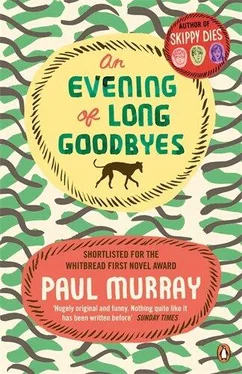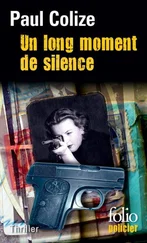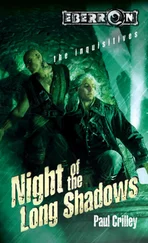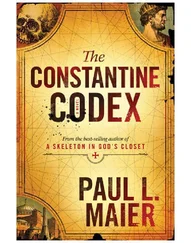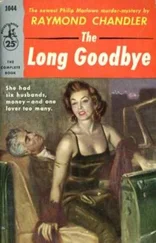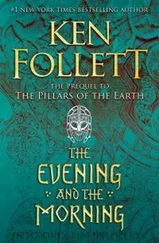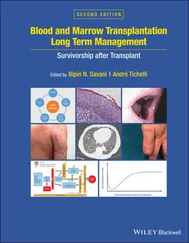‘There must be something we can do,’ I said.
The bank official chewed his ballpoint pen pessimistically. ‘Charles, I don’t know,’ he said. ‘I just don’t know.’
‘The family has assets , though — I mean it’s not as if we’re down to our last few pennies. This is just a temporary thing. Couldn’t we sort out a… a loan, or a moratorium or something? At least until I can talk to Father’s accountant, and he can… he can divert funds from our dividends…’
The bank official looked up at me with a weary little smile; he knew I didn’t know what I was talking about. ‘Charles,’ he said, ‘that would be all well and good. I would love to do that for you, Charles, and if it were personally up to me, you’re right, arrange a moratorium, that’s exactly what I’d do. But you see, I have to look after the bank’s interests too.’ His eyes looked earnestly into mine, hoping that I would understand. ‘It’s so far behind, and the sum is so large, and — though I personally believe you do — on paper I can’t see that you have the collateral to pay this off. I want to take care of this for you, Charles, but I have to make sure that the bank gets a square deal.’
I swallowed, looking helplessly back at him. Didn’t he think he could trust me? Did he think we were some crowd of snaky conmen, trying to take advantage of the bank’s good-heartedness? In a fatuous slip of mirror beside the fake-looking potted plant I caught a glimpse of my hands wringing, and wondered curiously whose, what they were.
‘The thing is, Charles — you see, the mortgage as it stands seems somewhat irregular . That’s what really bothers me.’ The pen went back in his mouth.
‘Oh yes?’ distractedly mopping my brow.
‘Yes. You see, normally, Charles, how a mortgage works is that when the first party passes away — Mr Ralph Hythloday, that’s — that was your father, I assume?’
I nodded.
‘I’m sorry,’ the bank official said quietly.
‘Thank you,’ I said. For a moment we reflected in silence.
‘Anyway,’ he resumed, ‘what usually happens is that, on the occasion of the borrower’s death, the life insurance is put towards outstanding debts. For some reason, that hasn’t happened in your father’s case.’
‘No?’ The atmosphere in the room was unbearably close; I glanced hopefully up at the fan.
‘No… and then when I go back further, I find that the original structure of the loan was… well, I’ve never seen anything quite like it. The payments are totally irregular. And they come in from somewhere new practically every time. Look,’ turning the screen round to me, ‘this is just in the last four years. Instead of us simply debiting your father’s account, the money’s paid in by this company on this date, and a different company here, and then there’s nothing for months, and then this lump sum from this bank which I have to say I’m not familiar with — do you know who any of these people are?’
‘Assets?’ I croaked weakly. My head was spinning and I could make no sense of the numbers dancing up and down on the screen. Why wouldn’t he let me go?
‘I don’t know who set this up,’ he was saying, ‘but it’s most irregular, most irregular.’
‘So what should I do?’ I said feverishly, simply to bring this to an end. ‘You can’t give me a loan, you say, and you can’t give me any more time.’
He looked at me with a sorrowful, stoical expression. ‘Charles, my hands are tied,’ he said. ‘If you can find your family’s accountant, and if he can make head or tail of this — well, then, maybe we can work something out. But as it stands… the debt will have to be called in.’
‘Meaning the house will be repossessed?’
‘That’s the standard operating procedure, yes.’ He brooded behind a steeple of fingers.
‘I see.’ That was the bottom line. I reached behind me for my jacket and got to my feet. ‘Well,’ I said, reverting to the breezy style I had begun with, as if none of this were really important anyway.
‘Yes,’ the bank official followed suit, ‘thanks for dropping by.’ He stretched over the desk to shake my hand.
‘Thank you ,’ I said without quite knowing why, and made my way to the door.
‘Oh, Charles?’
‘Yes?’
‘Why not have one of these?’ He took something out of a drawer and held it out to me.
‘Thanks,’ I said, taking it. It was a keyring. The plastic tag had the Irelandbank logo on one side, and the legend ‘We Pledge Unto You’ on the other; with a metal ring attached to it on which, presumably, I could hang the keys of the house I no longer owned.
‘You’re welcome,’ he said warmly. ‘Mind how you go.’
I saw Mrs P as I passed the supermarket, deep in conversation with a foreign-looking woman. The woman wore an identification badge and was selling magazines. ‘Mine are in one little room,’ she was saying, ‘above a butcher’s shop, we pay and pay, and when he say, oh, police, is trouble, we pay more —’ I covered my face with my hand and slipped by them, breathing stinging, shallow breaths. What was happening? What did they mean, those irregularities? Could it really be so complicated that they couldn’t begin to sort it out? Because it seemed to me to be so obvious; it was Father, he had assets, there was plenty of money, there had to be — Gasping, I leaned against a mock-Corinthian pillar, flooded by nightmarish images: hordes of machine-stitched blue suits pouring into the house, dismantling it with their dead Golem eyes, rebuilding it as a luxury aparthotel, a leisureplex, the eighteenth hole of a cross-town golf course…
There was nothing more I could do here, however. I detached myself from my pillar and, deciding a walk home might calm me, I headed up Ballinclea Road and through the iron gates of Killiney Hill Park. But instead of calming me, the pathways — my pathways, which I had trodden a thousand times — seemed to curl indifferently away from me; the trees bowed with the wind like elders shaking accusing heads, the birds screeching and yammering as if raising an alarm. And the mountains, and the sky, and the dark gorse and grey-blue rolling sea, they remained steeped in the clouded afternoon, withholding their beauty from me as from an undeserving passer-by.
Soon it began to rain, and by the time I got to Amaurot I was thoroughly soaked. Ascending the driveway, I saw the house appear through a shifting veil of precipitation. Already I seemed to feel its weight on my shoulders. ‘I can’t do it!’ I whispered inwardly. ‘You’re too heavy!’ And the house, even as I got closer, retreated further back into the rain.
It was pouring now. I went into the kitchen in search of a towel. From the window I saw Mrs P making her way in the direction of the clothes line, tucked discreetly in the lee of the Folly, with a basket of washing. Covering my head with one of Bel’s theatre monthlies, I chased out after her. ‘What are you doing?’ She froze, her shoulders leaping up around her neck. ‘Give me that basket,’ I said, taking hold of it. ‘You can’t hang clothes out in the rain.’ She handed over the basket without a word. I looked through the contents — blankets, towels, sheets, once again those fearful underpants, capacious with dread and mystery — everything already dried and pressed. ‘Go inside,’ I directed sternly. Mrs P looked as if she were about to cry. ‘Go inside and go to bed. You’re not well. I’m suspending you from your duties until we get you a doctor.’
And then she did start to cry. I set the basket down on the ground and, taking her arm in mine, led her back to the house. She sobbed and sobbed and as we walked over the wet grass I felt for all the world as though I was leading a prisoner to the scaffold. In the kitchen I sat her down and made some tea.
Читать дальше
